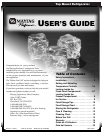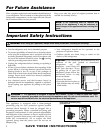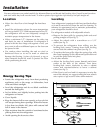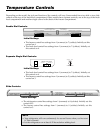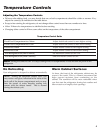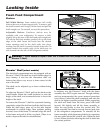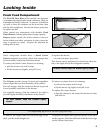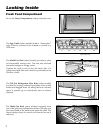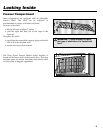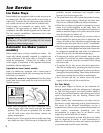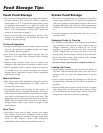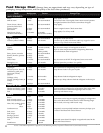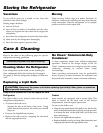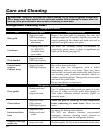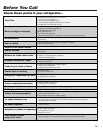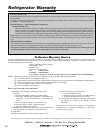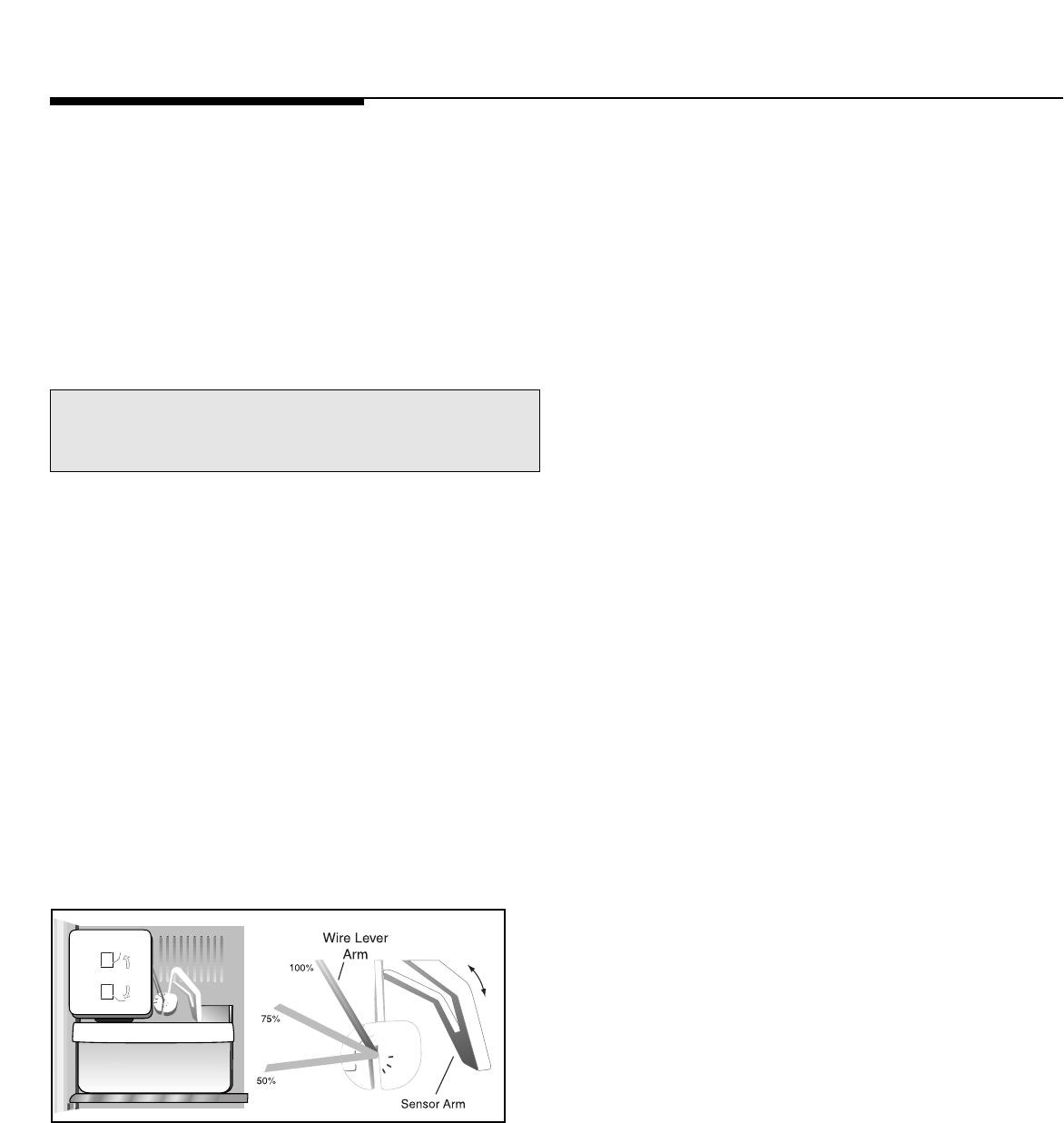
9
Ice Service
Ice Cube Trays
Some models are equipped with ice cube trays and an
ice storage bin. The bin stacks neatly on top of the ice
cube trays. To release the ice cubes from a tray, hold the
tray upside down over the bin and twist both ends.
Some models are automatic ice maker ready. The
number of the appropriate ice maker kit needed for
installation into these models appears on the data plate.
The kit contains installation instructions and water
connection instructions.
Automatic Ice Maker (select
models)
Other models have a factory installed ice maker. The
water inlet tubing assembly required to complete the
water connection to the water valve is located in a bag
inside the refrigerator. Connect the ice maker to the
water supply as instructed in the separate instructions
furnished with the refrigerator.
Adjustable Ice Level ( select models)
Some ice makers are equipped with a sensor arm to
adjust the amount of ice in your ice storage tray for times
when less ice is needed.
To adjust the amount of ice produced: Push the plastic
sensor arm inward and rotate the wire lever arm to the
desired capacity.
• After your refrigerator has been connected to the
water supply, move the sensor arm into the down
position. This will start its operation. The ice maker
will fill with water when the freezer reaches the
proper temperature.
• It may be 8 to 12 hours before the ice maker furnishes
any usable ice cubes. The first one or two batches will
probably contain undersized and irregular cubes
because of air in the supply line.
• The initial batch may also contain impurities from the
new water supply piping. Therefore, all cubes from
the first two or three batches should be discarded.
• When the ice cubes are ejected it is normal for several
cubes to be joined together at the ends. They can
easily be broken apart. The ice maker will continue to
make ice until the supply of ice cubes raises the sensor
arm, shutting the ice maker off.
• Certain sounds may accompany the various cycles of
the ice maker. The motor may have a slight hum, the
cubes will rattle as they fall into an empty storage pan
and the water valve may click or “buzz” occasionally.
• If the ice is not used frequently, the ice cubes will become
cloudy, shrink, stick together and taste stale. Empty the
ice storage bin periodically and wash it in lukewarm
water. Be sure to dry the bin before replacing it.
• To remove the ice bin, pull it forward, away from the
ice maker. To avoid the ice maker dumping ice while
the bin is removed, turn the ice maker off by lifting
the sensor arm.
• To replace the ice bin, reverse the above procedure.
Turn the ice maker on by lowering the wire lever arm.
• Beverages and foods should not be placed in the ice
storage bin for quick chilling. These items can block the
sensor arm, causing the ice maker to malfunction.
• Turn off (arm up) the ice maker when the water
supply is to be shut off for several hours.
For Your Safety
Do not place fingers or hands on the automatic ice
making mechanism while the refrigerator is plugged
in. This will help protect you from possible injury. It
will also prevent interference with moving parts of the
ejector mechanism and the heating element that
releases the cubes.
Under certain rare circumstances, ice cubes may be
discolored, usually appearing with a green-bluish hue.
The cause of this unusual discoloration can be a
combination of factors such as certain characteristics of
local waters, household plumbing and the
accumulation of copper salts in an inactive water
supply line which feeds the ice maker.
Continued consumption of such discolored ice cubes
may be injurious to health. If such discoloration is
observed, discard the ice cubes and contact your dealer
to purchase and install a water line filter.
ON
OFF
ON
OFF
100
%
75
%
ICE
LEVEL
50
%
ICE
LEVEL
50
%
75
%
100
%
100
%
75
%
ICE
LEVEL
50
%
ICE
LEVEL
50
%
75
%
100
%
NOTE:
Energy rating guides that are posted on the
refrigerator at the time of purchase do not include
optional ice maker energy usage.



